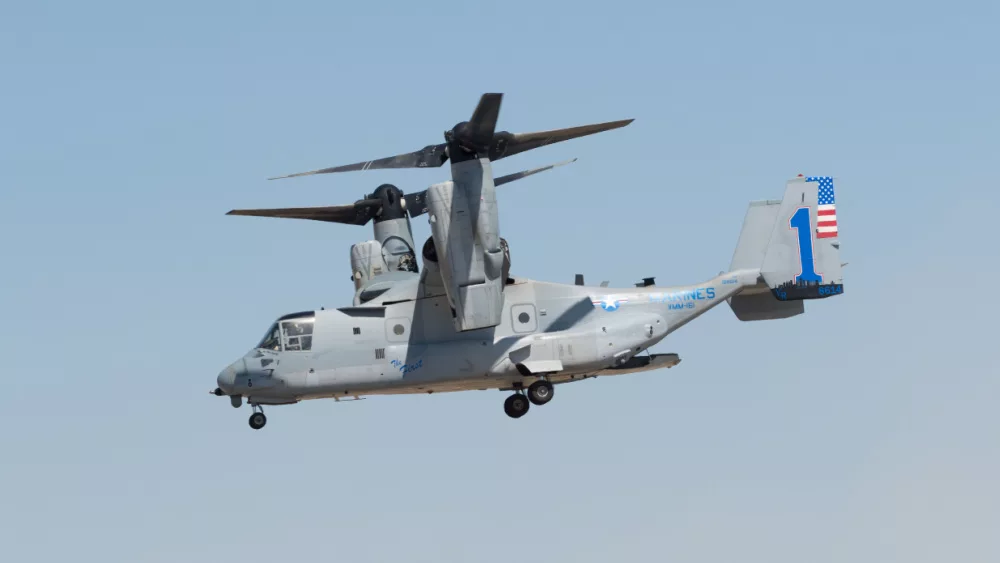
A U.S. military Osprey aircraft crashed into waters off southern Japan on Wednesday morning, killing at least one person and leaving several more missing. The CV-22B Osprey is based at Yokota Air Base and assigned to the 353rd Special Operations Wing, according to the Air Force Special Operations Command (“AFSOC”), who later issued a statement saying that eight were on board.
According to the Associated Press, the Japan Coast Guard confirmed to CNN that they received information about the crash around 2:47 p.m. local time after they received an emergency call from a fishing boat near Yakushima Island, which is around 130 miles south of Japan’s Kyushu Island.
The coast guard said in a statement that a member of the public called 118, Japan’s version of 911, at 2:47 p.m., and it immediately deployed patrol vessels and aircraft to the scene. At 4 p.m. (2 a.m. ET) a rescue team including boats from the coast guard and a local rescue center found “wreckage-like debris” and an overturned life raft, with no people in the raft. The coast guard confirmed that one man was recovered from the sea “unconscious and was not breathing” 1.8 miles from Anbo Port, which is near the accident site on the eastern side of Yakushima, by a boat from the Yakushima Town Rescue Center. They were given CPR and taken to Anbo Port, before later being pronounced dead at a local area hospital.
The U.S. Air Force said that the aircraft was involved a “mishap while performing a routine training mission off the shore of Yakushima Island.” Hiroyuki Miyazawa, Japan’s vice defense minister, told local reporters “in light of this incident, the minister of defense has asked the relevant departments to cooperate with the Japan Coast Guard to confirm whether or not there are any victims and to do their utmost to rescue them … adding … ‘the U.S. side explained to us that the pilot did his best until the very end, so we’re using the term ‘emergency water landing.’”
Editorial credit: betto rodrigues / Shutterstock.com






